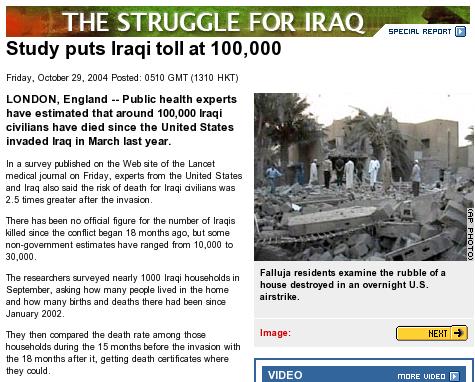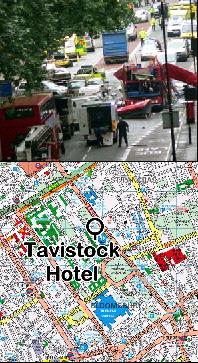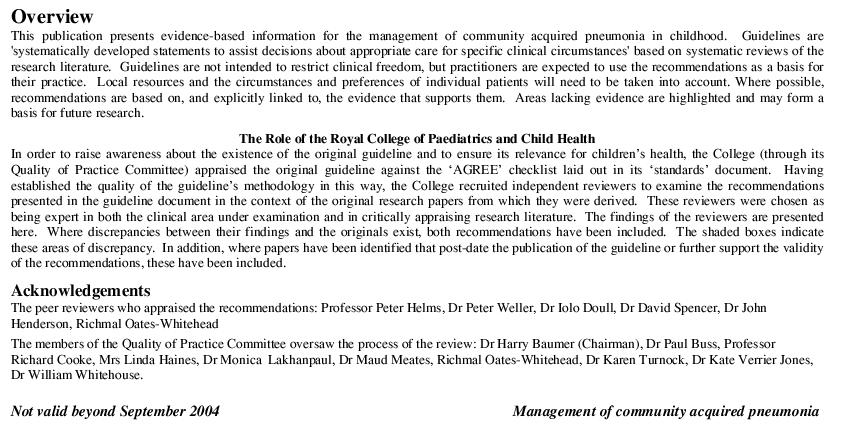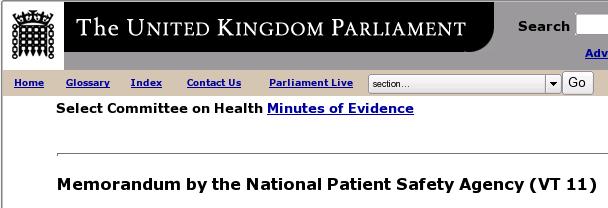|
|
BMA/BMJ graphic REMOVED
This Graphic of BMAs logo header has been removed due to threats of legal action to Captain wardrobe & the webspace owner
|
|
Counting the dead in Iraq was written
BMJ 2005;330:550-551 (12 March), doi:10.1136/bmj.330.7491.550
|
This article has been removed due to threats of legal action to Captain wardrobe & the webspace owner
|
Klim McPherson, who wrote the article is a visiting professor of public health epidemiology, the article was critical of the process of counting the dead in Iraq
bmj journals.com
|
|
[2003-2004] - .over 100,000 have died under Bush & Blairs FAKE WAR...
|
On Friday 29th October 2004, the Lancet medical journal published a study of post-war mortality in Iraq which estimated that at least 100,000 excess civilian deaths had occurred since the 2003 invasion; that most were caused by violence; and that most of those violent deaths were caused by coalition air strikes.
In his daily press briefing that morning, the Prime Minister's Official Spokesperson (PMOS) dismissed the study since its methodology was, he claimed, inappropriate:
"Asked if the Prime Minister was concerned about a survey published today suggesting that 100,000 Iraqi civilians had died as a result of the war in Iraq, the PMOS said that it was important to treat the figures with caution because there were a number of concerns and doubts about the methodology that had been used. Firstly, the survey appeared to be based on an extrapolation technique rather than a detailed body count. Our worries centred on the fact that the technique in question appeared to treat Iraq as if every area was one and the same. In terms of the level of conflict, that was definitely not the case. Secondly, the survey appeared to assume that bombing had taken place throughout Iraq. Again, that was not true. It had been focussed primarily on areas such as Fallujah. Consequently, we did not believe that extrapolation was an appropriate technique to use."
These criticisms of the Lancet mortality survey were repeated again on 1st November. They are misleading, and almost entirely unfounded. This briefing note examines the claims of the Prime Minister's Official Spokesperson. -
casi.org.uk
|
|
Britain accused of 'looting' Africa's doctors
Web posted at: 7/6/2005 3:21:36
LONDON: Britain faced charges of hypocrisy for urging the world's most powerful nations to end poverty in Africa while it "systematically robs" the world's poorest countries of its doctors and nurses.
Two-thirds of the doctors and 40 percent of the nurses who entered the British job market last year were trained outside Britain, many of them in Africa, the British Medical Association (BMA) said.
BMA chairman James Johnson said "the rape of the poorest countries must stop" as British Prime Minister Tony Blair prepared to open a summit Wednesday of Group of Eight (G8) leaders devoted to fighting poverty in Africa.
"It is completely pointless for the UK (United Kingdom) to give aid to Africa if we then systematically rob them of their most precious resource, the skilled people who have the practical ability to prevent and treat disease," Johnson said.
"As long as we cynically underproduce doctors and nurses in this country, the world's poorest countries will pay the price," he added. The trend of recruiting doctors and nurses from poor countries is not recent, the BMA said.
thepeninsulaqatar.com
|
|
Mortgage Can be a Health Deficit
Coping with a mortgage can be more than a financial burden, it can also take a toll on your health.
The British Medical Association (BMA) says people who fall behind on mortgage payments are at increased risk of a number of serious health problems, including stroke and heart disease, BBC News Online reports.
In a report called "Housing and Health," the BMA says "mortgage arrears and home repossessions" must be recognized as a major health issue. It says the government needs to address the issue and ensure assistance for homeowners having trouble meeting their mortgage payments. - HON Highlights
|
|
Ready for anything: a capital response [excerpt]
The response to the 9/11 stretched far further than transport, although the railway and the Tube were always considered as the most likely sites to be attacked. The government established London Resilience, a committee encompassing a whole swathe of organisations which would become involved in the event of such an emergency. It is 'an inter-agency team led by a senior civil servant, with experts from the emergency services, transport operators, utilities, NHS and local government [which] was commissioned to review London's preparedness'.
The assessment in the light of 9/11 was that while the emergency services were reasonably well geared up to tackle events which had happened before such as train crashes or major fires, work was needed to develop better coordination and planning for new threats such as those posed by the new form of terrorism. London Resilience was therefore made a permanent body overseen by a forum, chaired by a government minister (originally Nick Raynsford but since the election Phil Woolas) and with Ken Livingstone, the mayor, as his deputy. It has a permanent team at its disposal, based in the Government Office for London with membership of a core of civil servants supplemented by people from 14 organisations including the obvious ones such as the Metropolitan Police and the London Fire Brigade but also British Telecom and the Salvation Army.
The system that has emerged from the work of London Resilience is now well coordinated and rehearsed. That was apparent from the immediate response. By 9am, less than 10 minutes after the first three bombs went off, the various parties involved were having a conference call. Emergency control centres at Network Rail's headquarters in Euston, at London Underground's famous 55 Broadway head office and at the Metropolitan Police's centre at Hendon were opened up. The latter also includes the Fire Brigade and the Ambulance service, ensuring coordination between all three emergency services.
Crucially, liaison officers between these three organisations - codenamed gold, while most other major organisations are silver and local level ones are bronze - were despatched to the other centres in order to improve coordination. As one senior rail manager put it to Public Finance, 'the days of freelance action by one party are over'.
Suggestions in the press earlier this week that there had been a twenty minute delay before a full emergency was declared were roundly dismissed by Transport for London: 'The implication that nothing much happened during that period is pure rubbish', said a spokesman.
The rapid response was helped by good luck too. At the time the bombs went off, a meeting was taking place of paramedics and others involved in emergency plans and they were quickly despatched to the various sites. Speed is crucial in trauma cases, with the treatment in the first 15 minutes often determining life or death. There was also at the time a meeting of senior Network Rail staff in the Russell Hotel, yards from the Tavistock Square and Russell Square tube station, and, donning their emergency jackets, they were quickly able to help out at the two nearby scenes of bombings, King's Cross and Tavistock Square.
christian wolmar
|
|
|
A British Medical Journal clinical editor who trained in medicine at the University of Auckland, she was among British Medical Association staff who ran to help after the bus exploded in Tavistock Square outside their office on July 7, killing 13 people.
In the hotel next door that became a makeshift hospital, Dr Oates-Whitehead was checking the blood pressure of a woman with chest pains when a police officer and a fireman asked her in low voices if she would come to the bus.
A second bomb was feared to be in it, they said, and emergency staff were being moved away. But they needed one doctor to assist as firemen cut two badly injured people out of the wreckage. Would she come? They would understand if she declined.
Dr Oates-Whitehead agreed immediately without pondering the risks. "There was no room for hesitation - I wasn't thinking at that level," she told the Weekend Herald from her home in west London. "It was the moral and ethical thing to do."
from a now missing news item in the New Zealand Herald [found on this blog]
|
"...There was also at the time a meeting of senior
Network Rail staff in the Russell Hotel..."
|
The Hotel Russell
Russell Square
London WC1B 5BE
|
The BMJ Publishing Group Ltd
Tavistock Square,
London, WC1H 9JR, UK.
|
"...In the hotel next door that
became a makeshift hospital..."
|
|
'Doctor' status of NZ bomb heroine questioned
15.08.05 11.00am - The British Medical Association is investigating the status of a New Zealand woman who appeared in a front-page newspaper story about her heroics as a doctor during the London bombings.
The article said Dr Richmal Marie Oates-Whitehead, who works in a non-doctor role for the British Medical Journal, did the "ethical and moral" thing when asked to enter the wrecked bus in Tavistock Square and tend to the injured, despite fears of a second bomb being on board.
The July 30 article in the Weekend Herald said the Gisborne-raised woman studied medicine at Auckland University, but the university has no record of her graduating and neither does Otago Medical School, the only other New Zealand medical school, the Sunday Star-Times reported.
Her name does not appear on the New Zealand Medical Council register or the UK equivalent, the General Medical Council register.
Oates-Whitehead is on leave from the BMJ and could not be contacted.
A British Medical Association spokeswoman said concerns had been raised about Oates-Whitehead and they were being investigated. She would not elaborate but the Sunday Star-Times understands the BMJ will comment further within the next two weeks.
Oates-Whitehead's mother declined to comment.
The number 47 bus was the fourth target of the July 7 terrorist bombings, a bomb blowing it up outside the offices of the British Medical Association and the BMJ.
[check that bus Number! my note: this article was written how long after the attacks?]
At least 10 doctors and medical staff ran from the BMA offices and began treating the bomb victims. In the article, Oates-Whitehead said she was helping the injured in a makeshift hospital set up in a hotel next door to the medical association when two firemen approached her for help.
"They needed one doctor to assist as firemen cut two badly injured people out of the wreckage. Would she come? They would understand if she declined," the article said.
Oates-Whitehead said: "There was no room for hesitation -- I wasn't thinking at that level. It was the moral and ethical thing to do."
The article then describes a controlled detonation of a second bomb.
"Outside, there was another enormous bang as police detonated the 'bomb' -- which turned out to be a false alarm."
However, the London Metropolitan Police told the Star-Times they had no record of a second controlled explosion ever being carried out in Tavistock Square.
A source described Oates-Whitehead as very intelligent and said she was fluent in German and French. The Star-Times understands the 35-year-old, who recently described herself as a professor in a group email to colleagues, has been living in the United Kingdom since the middle of 2001 and worked as a radiation therapist in Auckland for several years.
Thirteen people died in the Tavistock bus bombing and 43 died in three explosions on the London underground. They included London-based Kiwi Shelley Mather, 26. - nzherald.co.nz
|
was their a second bomb alert?
|
[exerpt from "The Horror" - Sunday July 10, 2005 - The Observer ]
Ann Somerville, 37, was in the vehicle nearest the bus when the bomb detonated. 'There was a loud explosion and the roof peeled off the bus like a banana skin. You could hear cries. There were plumes of smoke and lumps of debris flying everywhere at all angles. It smelt like gunpowder,' recalled Somerville, who had been driving her Honda to the BMA, where she is head of ethics.
'I was just amazed. I couldn't work out whether to get out of the car and run and help, or move my vehicle out of the way of the emergency services. I decided to do a three-point turn and clear out of the way,' Somerville added.
Even for a trained doctor, the scene confronting Somerville was almost too much to comprehend. Blood was splattered up the walls of the BMA's offices. A blue plaque nearby declaring that the building had once been home to Charles Dickens was pockmarked with shrapnel. The bus looked grotesque. Along one side an advert for a forthcoming film could still be made out. 'Outright terror, bold and brilliant,' the ad ran. The rest of the ad had been blown away.
The carnage contrasted brutally with the genteel tranquility of the nearby square with its dedications to peace - a statue of Mahatma Gandhi, a Hiroshima cherry tree and a Holocaust memorial.
Dr Sam Everington was inside the BMA's headquarters when he heard the blast. Everington immediately knew what it was and ran downstairs to see bodies scattered across the pavement. With six other doctors he immediately began trying to save the lives of the casualties, but it wasn't easy because they only had the most basic equipment.
Everington, a GP who has spent his life trying to improve healthcare for the most deprived communities of east London, had never dealt with such an emergency, but he knew what had to be done: keep the seriously injured alive until the paramedics arrived.
'The majority of casualties were all over the road but there was one person alive on the bus. He was Chinese, and we were worried about a neck injury so a passer by helped us by holding his head in the right position for quite a long time, until the fireman got him out. Next time I saw him he was in BMA House, seriously injured. I don't know what happened to him.'
The doctors had to try and resuscitate the victims with whatever equipment they could. Dishcloths, tea towels and tablecloths were used to try and stem the enormous blood losses.
After 20 minutes of treating people at the roadside, the doctors were warned by police there might be another bomb on the bus. They had to evacuate the area, and brought boards and tables out of BMA House, using them to carry people into their courtyard, where a makeshift casualty unit was established.
'Much of the work was simply about stopping bleeding. A bit later, we had access to fluids and oxygen, but it took quite a long time for the emergency services to arrive because this was the last bomb blast and most of them were at the other sites and couldn't get through easily,' Everington said. Some had lost limbs; a turniquet had to be used to save one person who lost the lower part of a leg. Another person died as the doctors worked.
'It was simply about trying to stop the bleeding, keeping the airway open, and dealing with chest injuries.'
Amid the carnage workers on a building site nearby rushed to give blood. Cordons were erected around the square and the roads leading to the nearby hospitals of Great Ormond Street and University College. Staff acted as human barriers to prevent traffic blocking up the streets so the ambulances could get through.
Up to 100 members of the Church of Scientology in garish yellow jackets joined the relief operation as sandwiches and bottles of water were rushed through the police cordons. As the mobile phone networks collapsed under the weight of calls people queued outside phone boxes to call relatives.
- The Horror
|
[Up to 100 members of the Church of Scientology in garish yellow jackets?]
|
|
"The July 30 article in the Weekend Herald said the Gisborne-raised woman studied medicine at Auckland University, but the university has no record of her graduating and neither does Otago Medical School, the only other New Zealand medical school, the Sunday Star-Times reported."
so...because the Sunday Star-Times might not have checked it's facts she now becomes the immediate 'fraud' ???
what sort of News Media goes digging about on Local Heros who save peoples lives?
Even if they found she wasn't a bona fide doctor - could they not heve been a bit more subtle? After all Ms. Oates-Whitehead might be suffering, or at emotional risk...
as it happens, she was.
|
|
[Richmal Oates-Whitehead]
|
Bomb bus 'doctor' found dead
20 August 2005 - A New Zealander with questionable qualifications who was hailed a hero for her actions during the London bombings has been found dead in London.
Richmal Marie Oates-Whitehead, 35, who worked in a non-doctor role for a British Medical Association publication, was found by police at Shepherds Bush on Wednesday (British time), an Auckland paper reported today.
The Metropolitan Police said her death was not suspicious but it would be investigated by a coroner.
The paper said officers went to Ms Oates-Whitehead's home after a call from a worried relative in New Zealand. Ms Oates-Whitehead had resigned last week as editor of the British Medical Journal's Clinical Evidence web publication after questions were raised about her claim to be a doctor.
She was quoted in a New Zealand newspaper after the London bombings as saying that she did the "ethical and moral" thing when asked to enter a wrecked bus in Tavistock Square and tend to the injured, despite fears of a second bomb. The paper said the Gisborne-raised woman studied medicine at Auckland University but the Sunday Star-Times said at the weekend the university had no record of her graduating. New Zealand's only other medical school, Otago Medical School, also had no record of her graduating.
|
|
The BMJ Publishing Group released a statement during the week saying it had received queries about Ms Oates-Whitehead's professional qualifications.
"The matter of her professional standing is currently being investigated," it said.
Ms Oates-Whitehead's cousin, Gisborne man Jim Whitehead, said she suffered from epilepsy. She had not qualified as a doctor in New Zealand but was well-qualified, he told NZPA today. "She may well have gone to the UK and done that (trained as a doctor).
"She was certainly no slouch. She was an intelligent person, so for her to have done that would not be unreasonable."
Mr Whitehead said Ms Oates-Whitehead had a brother. - stuff.co.nz
|
Is this for real?
below is a further article ''heroine' living a life of make-believe ' which,
even after this poor womans death...still digs in the dirt...
Ask yourself this: who started the investigation into Ms Whitehead? The BMJ/BMA ?
|
|
BMA/BMJ graphic REMOVED
This Graphic of BMAs logo header has been removed due to threats of legal action to Captain wardrobe & the webspace owner
|
|
The NZ Herald
or the 'Star Times'?

|
London bomb 'heroine' living a life of make-believe
21 August 2005 By GREG MEYLAN
Richmal Oates-Whitehead always dreamed of being a doctor and for a few chaotic, adrenaline-filled hours she was, tending to the wounded victims of London's deadly July 7 terrorist attacks. But that day's events also uncovered a deception that led to the 35-year-old Kiwi being found dead in her London home on Wednesday. The life of the woman who always carried a stethoscope in her handbag was a mix of truth and fiction.
She said she was being stalked, that her partner was a retired professor in obstetrics, that she had given birth to twins who died, was receiving treatment for cancer and suffered from multiple sclerosis, all or some of which were make-believe.
An Auckland medical professional felt threatened by Oates-Whitehead and was concerned she was modelling her fictitious life after her own.
[Note: no names given]
Three weeks ago, Oates-Whitehead smiled from the front page of the Weekend Herald, beside an article about her bravely administering emergency aid to survivors of the Tavistock Square bus bombing.
|
|
But publication of the story exposed her to the scrutiny of Kiwis who knew her, and several contacted the Herald and her employers at the British Medical Journal questioning her status as a doctor. The BMJ started an investigation, and Oates-Whitehead immediately resigned. Within a fortnight she was dead.
Her journey towards the deception appears to have begun in New Zealand in 2000, when she attended meetings of the local branch of the Cochrane Collaboration, an international affiliation of health practitioners and scientists who compile analyses of trial data about various drugs, medical procedures and treatments.
As a trained radiation therapist and health services manager she was invited to work on a review of "anticoagulant prophylaxis for preventing thromboembolism after major gynaecological surgery" - ways to prevent blood clots. Her review group co-ordinator told the Sunday Star-Times it was not unusual for non-doctors to work on reviews, but they were usually paired with experienced academics or doctors.
She described Oates-Whitehead as an intelligent woman and said the review was of high quality and led to her working on several others, most of which account for the 450 Google internet search matches on her name.
In 2001, Oates-Whitehead travelled to London and began calling herself a doctor. About three years ago, she started signing her emails as an epidemiologist - a specialist in controlling epidemics - when she was actually working as a clinical effectiveness co-ordinator for the Royal College of Paediatrics and Child Health.
When she got a job this year as an editor for the BMJ's Clinical Evidence publication, helped by papers saying she was a doctor, she began signing emails as Professor Richmal Oates-Whitehead.
Last August, she sent an email to colleagues at the Cochrane Collaboration explaining she had just lost twins who were born prematurely and lived for only a day. For many it was the first they knew she was pregnant and there was an outpouring of sympathy.
A death notice appeared in the Herald on August 23: "Two beautiful girls, Jemima Josephine and Molly Niamh. Born 7 August 2004, died 8 August 2004. Taken away from Mummy and Daddy too soon. Two more beautiful angels in heaven."
Five days later, Oates-Whitehead placed two more death notices in the Herald, one in her name and one in that of the father, Michael Fitzgerald.
A Star-Times attempt to find the twin's birth or death certificates proved fruitless.
The Lambeth registry office said if they had been born at St Thomas' Hospital in London, as indicated in the death notices, they would have been registered there, but they were not. Oates-Whitehead had told colleagues her partner worked as a doctor on London's famous Harley St but, again, there is no trace of him.
After the July 7 bombings, she told a surprised colleague she was about to undergo cancer treatment, and in one of her last emails to a friend said she had multiple sclerosis, which had flared under the pressure of media inquiries.
Sydney forensic psychiatrist Dr Anthony Samuels said Oates-Whitehead probably believed her own lies, and complaints of terrible illnesses were common among people with borderline personality disorder.
Samuels said she probably posed as a doctor to satisfy a psychological need rather than for monetary or practical benefits.
"In this role she may have started to feel good about herself and then it all blew apart," he said.
"It is a sad case."
[my note: it is after you've driven her to suicide]
"People with borderline personality disorders often get into caring professions because they have so much need themselves and it distracts them from their own pain." At a superficial level they were often very charming, but they had difficulty forming relationships.
School friends described Oates-Whitehead as a quiet teenager, one of the "brainy crowd" and someone who always wanted to work in medicine. Her friend from Gisborne's Lytton High School, Natasha Delgarno, remembers her with affection and said she adored her at school.
"Richmal was a real sweetie. She was very, very sensitive, caring and quite highly strung. A huge softie. She had some health problems and was very accident prone and that affected her school life, because she had a lot of absences. "She was quite moody and sometimes seemed depressed, but we all loved her very much and accepted her as she was, with all her little quirks."
Delgarno got in touch with Oates-Whitehead as a result of her newspaper appearance, and said that in her last email she sounded "chirpy and bubbly". "Richmal was a real dreamer and talked a lot about her dreams - she was very interested in the medical profession and talked about marrying a doctor, becoming a nurse or other type of medical professional, and having children.
"Her other dream was to be an actress, and I remember she loved soap operas and knew all the names of the actors.
"It is terrible to think that she did not find happiness in life."
- stuff.co.nz
|
|
Richmal Marie Oates-Whitehead, Class of 1987 - Lytton High School - Gisborne, New Zealand - namesdatabase.com
|
|
Cochrane Collaboration Steering Group (CCSG) member:
Dr Richmal Marie Oates-Whitehead
Research Division, Royal College of Paediatrics
Institute of Child Health
Department of Epidemioloy & Biostatistics
50 Hallam Street
London W1W 6DE
UK
cached source
|
|
|
Criticism Management Advisory Group
Report to the Steering Group -
Since March, 2004, Dr. Richmal Oates-Whitehead has resigned from the role of Co-Convenor; Dr. Sheinfeld Gorin will retain the post alone. - cached source
|
|
|
Richmal Oates-Whitehead was listed as a doctor by NHS direct: Why???
Our contributors
Richmal Oates-Whitehead
Area of expertise: nausea and vomiting in pregnancy
Dr. Oates-Whitehead is an epidemiologist (a doctor who studies how common diseases are in groups of people). She has done research on health management, medical philosophy, ethics and forensic science. She is also an editor for the Cochrane library, which collects and analyses research to help doctors put research into practice. - saved cache of page
She is listed as a member of the Welsh Institute for Health & Social Care Staff as a Research Student at the university of Glamorgan
|
|
|
on this page i found the paper entitled
'Anticoagulant prophylaxis for prevention of thromboembolism after major gynaecological surgery',
by Oates-Whitehead RM, D'Angelo A, Mol B.
The reported overall risk of deep venous thrombosis in gynaecological surgery ranges from 7 to 45%. Fatal pulmonary embolism is estimated to occur in nearly 1% of these women. Pharmaceutical interventions are one possible prophylactic measure for preventing emboli in women undergoing major gynaecological surgery. Agents include unfractionated heparin (low -dose and adjusted-dose), low-molecular-weight heparins, heparinoids and warfarin
which was cited in a Memorandum by the National Patient Safety Agency [back-up] to the UK Houses of parliament Select Committee on Health
NATIONAL PATIENT SAFETY AGENCY ON THE USE OF ANTICOAGULANT MEDICINES / EVIDENCE OF HARMS WITH ANTICOAGULANTS
|
Anticoagulants are often called "blood thinners," although they don't really thin blood. They work by decreasing the blood's ability to clot.
Why It Is Used
Anticoagulants are given during unstable angina or a heart attack because they can prevent clots from becoming larger and blocking coronary arteries. They are often given with other anticlotting medications to help prevent or reduce heart muscle damage.
Also, anticoagulants are used to prevent blood clots from forming in the heart during or after a heart attack. The risk of blood clots forming in the heart chambers increases with an irregular heartbeat or heart failure. If the clot enters the bloodstream and lodges in a blood vessel, it can cause a stroke or pulmonary embolism.
Anticoagulants also may be given after angioplasty to help reduce the risk of clot formation and subsequent artery closure.
How Well It Works
Anticoagulants reduce the risk of stroke and recurrent heart attack. They may lessen the risk of heart attack in people with unstable angina or those who have recently had angioplasty.
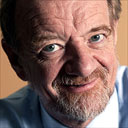 just as an example of just as an example of
a heart attack victim...er!
|
Side Effects
Anticoagulants can cause bleeding problems. Check with your doctor if any of the following occur:
Increased bruising, or tiny red or purple spots on the skin
Recurrent, difficult-to-stop nosebleeds or any bleeding that is difficult to stop
Bleeding gums
Blood in your urine
Coughing up blood
Abnormally long or heavy menstrual bleeding
Black, tarry, or bloody stools; or constipation
Joint pain, stiffness, or swelling
Persistent or severe headache, backache, or neck ache
Toes (and also possibly abdomen, breasts, and other fatty tissue areas) that turn purple or blue. If this side effect occurs, call your doctor immediately.
Other side effects may indicate that you are allergic to the medication. Talk to your doctor if you have any of the following:
Changes in the skin color of the face; puffiness or swelling of the eyelids or around the eyes
Tightness in the chest, difficulty breathing, and/or wheezing
Skin rash, hives, and/or itching
health.yahoo.com
more information here: Treatments - drugs
|
so why wasn't Ms.Richmal Oates-Whithead discovered and helped?
she seems to have done an amazing job
helping those victims of the Bus Bombings...
She should have been helped....
NOT Investigated in this CALLOUS Manner
|
|
BMA/BMJ graphic REMOVED
This Graphic of BMAs logo header has been removed due to threats of legal action to Captain wardrobe & the webspace owner........it contained a screenshot of the obituary list from the BMJ which FAILED to note Ms.Richmal Oates-Whitheads sad passing
|
|
|
Ms.Richmal Oates-Whithead - you were a heroine, no matter how ill you were...
I salute you...
|
This section has also been removed due to threats of legal action to Captain wardrobe & the webspace owner
The BMA, it seems, is concerned with accuracy in reporting war dead, yet their
staff vetting practices seem to be less than comprehensive.
Not forgetting the manner in which (a potentially very ill woman) Ms Whitehead was investigated and expoited purely, it seems, for Gawkish Neo-Victorian 'entertainment value' of a London Bomb related Hit-peice.
It's a Shame the dead can't talk isn't it?
|
|
|
|


